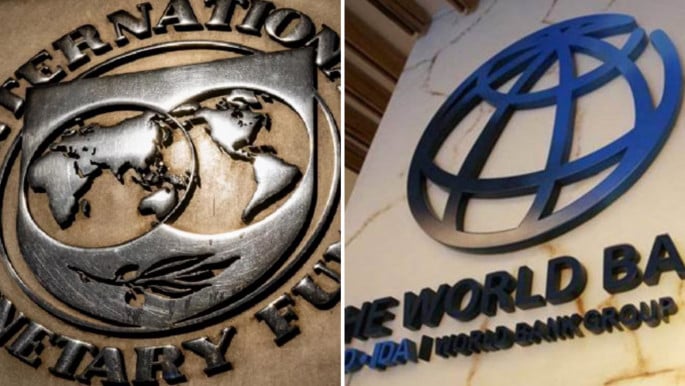
A joint International Monetary Fund (IMF) and World Bank mission has recommended that Bangladesh establish a unified Debt Management Office (DMO) to strengthen public debt governance, streamline borrowing operations, and reduce fiscal risks yesterday (3 November).
The proposal was presented at a workshop titled “Establishing a Debt Management Office”, held yesterday at the Finance Division in the Bangladesh Secretariat, Dhaka. The session was organised under the Scheme on Strengthening the Capacity of Treasury and Debt Management Wing of the Finance Division, part of the Strengthening Public Financial Management to Enable Service Delivery (SPFMS) programme.
The IMF–World Bank mission observed that Bangladesh’s current debt management functions are spread across multiple agencies, leading to coordination gaps, inconsistent debt data, and difficulties in implementing a comprehensive debt management strategy, reads a press release.
The mission also noted the absence of a centralised and audited debt database and a formal cash flow forecasting mechanism—both essential for informed and cost-effective borrowing.
In its presentation, they proposed consolidating all government and government-guaranteed debt functions under the Finance Division, starting with the restructuring of the existing Treasury and Debt Management Wing. In the initial phase, the proposed DMO would manage domestic debt issuance, prepare annual borrowing plans, coordinate auction calendars, assess portfolio risks, and develop an integrated debt database by linking existing systems.
The experts also called for a clear legal framework defining borrowing authority, accountability mechanisms, and transparency standards. To ensure professional operations, they recommended recruiting staff with expertise in capital markets, settlement, and risk management—potentially drawing talent from Bangladesh Bank, commercial banks, and the capital market.
Over the medium term, the DMO could evolve into a more autonomous agency with expanded responsibilities such as managing contingent liabilities and investor relations. The mission noted that many countries established centralised DMOs in the 1980s to reduce borrowing costs, strengthen fiscal transparency, and separate debt management from monetary policy operations.
Md Hasanul Matin, additional secretary (Administration, Planning & TDM) of the Finance Division, attended the workshop as the chief guest. Special guests included Dr Ziaul Abedin, additional secretary (Budget-1) and national programme director of SPFMS, and Hasan Khaled Foisal, additional secretary (Macroeconomics-1). The session was presided over by Mohd Rashedul Amin, joint secretary of the Treasury and Debt Management Wing.
The mission, led by Arindam Roy, senior financial sector expert, also included Dr Jens Clausen, Philip RD Anderson, and Per Jonsson. Officials from the Finance and Economic Relations divisions also shared their views, including Md Monzorul Haque, joint secretary (Expenditure Management), and Abu Daiyan Mohammad Ahsanuallah, joint secretary of the Economic Relations Division.
The IMF–World Bank mission concluded that creating a unified DMO in Bangladesh would require strong political commitment, phased institutional reforms, investment in modern IT systems, and sustained inter-agency coordination. Once operational, the DMO is expected to enhance investor confidence, lower financing costs, and reinforce Bangladesh’s long-term fiscal sustainability.